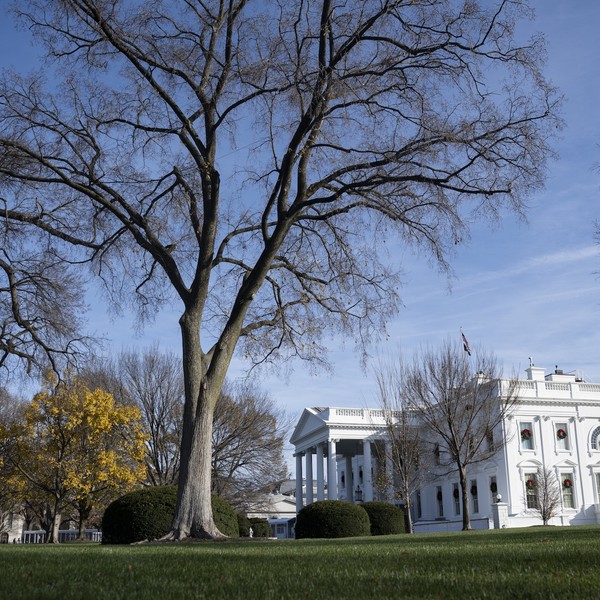OPINION — Earlier this year, the American Innovation and Choice Online Act (AICOA), which aims to prevent leading technology companies from engaging in anti-competitive behavior, had its first, and likely only, public hearing before passing out of the Senate Judiciary Committee.
The “covered platforms” that fall under the jurisdiction of this bill are the large American tech companies we are all familiar with—Alphabet (parent company of Google), Amazon, Apple, and Meta (parent company of Facebook). Yet in the absence of a clear strategy for domestic tech policy, this bill is but the latest U.S. government initiative that, if executed, could undermine its purported goal of advancing U.S. competitiveness.
Confusion surrounding a way forward on tech policy was reflected throughout the four-hour debate before the bill’s eventual passage. Despite rare bipartisan agreement on Capitol Hill and in the White House to reign in Big Tech, multiple senators on both sides of the aisle sounded the alarm about the bill’s unintended negative consequences for American competitiveness, consumer privacy, and national and cyber security.
Senator Tom Cotton (R-AR), for example, raised concerns that the bill “could require data sharing between American companies and bad actors,” a sentiment echoed by Senator John Cornyn (R-TX) who argued the bill “serves our homegrown companies up on a big platter and does nothing to impact the bad conduct of our adversaries.” Meanwhile, Senators Chris Coon (D-DE) and Thom Tillis (R-NC) observed that the bill does not adequately consider consumer privacy and data security or address the balance between innovation and unintended consequences on the global stage.
The Expert-led Cyber Initiatives Group is hosting its Spring Summit, co-hosted by Cipher Brief CEO & Publisher Suzanne Kelly and Former Assistant Secretary of Homeland Security for Cyber, Infrastructure, Risk and Resilience Policy Matt Hayden on Wednesday, May 25. Reserve your seat today.
These reservations reflect the reality that America’s largest and most successful tech companies are linked to future U.S. leadership in technology innovation. By investing heavily in research and development (R&D) and upholding strong standards for consumer data privacy and cybersecurity, these companies help counter the rising technological, economic, and military ambitions of foreign adversaries like Russia and China. The impacts of ill-considered legislation would be equivalent to disarming our country and leaving it vulnerable to China’s circling state-controlled tech companies. If there is one thing that recent antitrust markups have made clear, it is that there has been little meaningful analysis on how these sweeping regulations would impact national security and competitiveness.
Moreover, certain legislative proposals concerning tech platforms run counter to recent policy commitments that invest in the relationship between technology companies and the federal government, such as the America Creating Opportunities for Manufacturing, Pre-Eminence in Technology, and Economic Strength Act of 2022 (America COMPETES Act), which the House passed on February 4. A similar bill – the United States Innovation and Competition Act (USICA) – was approved in a bipartisan Senate vote last year. Both bills dedicate billions of dollars to advance America’s global competitiveness by facilitating partnerships between tech companies and the federal government to meet critical security needs. Yet despite their votes for bills that call for “Pre-Eminence in Technology” and innovation, members of Congress appear to see no hypocrisy in simultaneously pushing forward antitrust bills that single out some of America’s most innovative and competitive businesses.
Cipher Brief Subscriber+ Members got an exclusive expert briefing with former MI6 Chief Sir Alex Younger, former Senior Member of the British Foreign Office Nick Fishwick and other Cipher Brief Experts as the situation in Ukraine unfolded last week. Upgrade to Subscriber+ today.
We see a similar inherent policy contradiction in the Biden Administration’s so-called “Alliance for the Future of the Internet”. Some of the goals of the Alliance, which is reportedly set to launch in early 2022, appear to be in direct contradiction with each other. The Alliance aims to promote democratization of digital services and spread democratic values to counter those of China. However, a leaked draft states the Alliance would provide a forum for regulating the same technology platforms at scale to promote U.S. values to millions of users around the world. Further, the Alliance’s initial approach shut out industry, civil society, and consumers.
The Department of Commerce has maintained a strong record in voicing concerns about policy that targets specific U.S. companies. Recently, Alan Davidson, the newly confirmed head of the National Telecommunications and Information Administration (NTIA), said Commerce was reviewing competition in the mobile app ecosystem, and would highlight its findings in an official report expected this summer. Ongoing efforts like this should be allowed to unfold before there is a rush to impose novel policy solutions, let alone major legislation.
With war being waged in Europe, now, more than ever, our policymakers in Congress and the White House need to recognize the vital role our technology sector plays in strengthening our position in the world and safeguarding our digital economy from foreign actors. Instead of haphazard approaches to tech policy, we should develop a comprehensive strategy establishing what American tech policy is and how it will endure throughout future administrations. Doing so will give the U.S. the capacity to lead in the research and development that drives innovation across critical sectors.
Read more national security insights, perspective and analysis in The Cipher Brief















